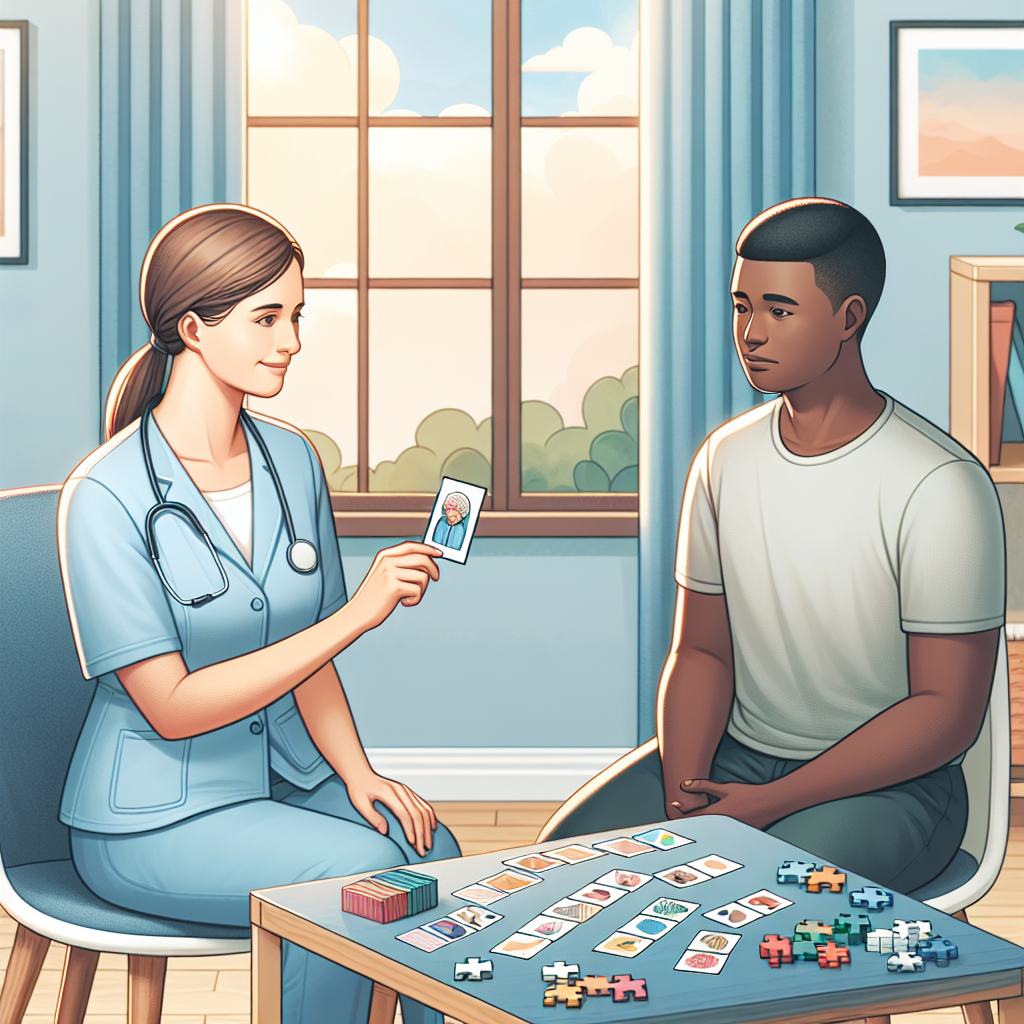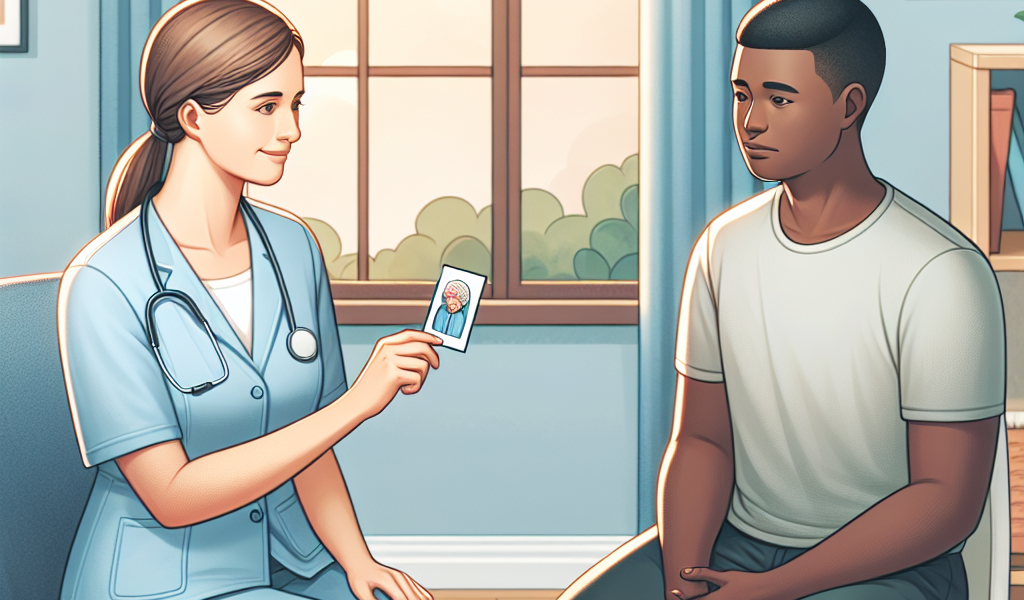How Long Does Cognitive Rehabilitation Therapy Typically Last?
In the vast realm of treatments and therapies, cognitive rehabilitation therapy holds a unique space. A journey aimed at healing the mind, it’s a path you tread with determination and patience. Yet, maybe the looming question on your horizon is – how long? This inquiry is the torchlight in the enigmatic journey of cognitive therapy. Illuminate this mystery in the enlightening piece, “How Long Does Cognitive Rehabilitation Therapy Typically Last?” Here we shall illuminate the time factor involved in cognitive rehabilitation therapy.

Understanding Cognitive Rehabilitation Therapy
Cognitive Rehabilitation Therapy (CRT) is an umbrella term that refers to a broad range of techniques designed to help people with cognitive impairments enhance their functional abilities and quality of life. You might be curious about the specifics of what it encompasses, who might require such therapy, and what it aims to accomplish. Let’s dive into these topics, shedding light on the intriguing world of cognitive restoration.
Definition of Cognitive Rehabilitation Therapy
CRT is a type of therapy designed to help individuals recover or improve their cognitive functions like memory, attention, and problem-solving. It is typically delivered by a team of professionals and is often tailored to suit your unique needs.
Who needs Cognitive Rehabilitation Therapy?
Quite simply, anybody who endures cognitive dysfunction due to injuries or diseases affecting the brain could benefit from CRT. This includes individuals who have suffered strokes, traumatic brain injuries, or those living with degenerative conditions like Dementia or Alzheimer’s.
Objectives of Cognitive Rehabilitation Therapy
The goal of CRT is to empower you. By restoring your cognitive abilities, it can help you regain self-sufficiency, enhance your coping mechanisms and ultimately improve your overall quality of life.
Common Conditions That Require Cognitive Rehabilitation Therapy
Various conditions can impede cognitive function, necessitating the use of rehabilitation therapy. Here, we take a look at some of the most prevalent of these conditions.
Stroke
A stroke can induce varying levels of cognitive decline. This could range from subtle changes in your short-term memory to severe impairment in crucial cognitive areas such as comprehension or problem-solving. Rehabilitation following a stroke often involves CRT.
Dementia or Alzheimer’s disease
Dementia, including Alzheimer’s, can significantly affect your memory, thinking skills, and ability to perform daily tasks. CRT can be a crucial component of care for individuals with these conditions, empowering them with strategies to compensate for their lost abilities.
Traumatic Brain Injury
Traumatic Brain Injury (TBI) can lead to a wide range of cognitive impairments, disrupting your memory, attention, and executive functions. CRT is often integral to the recovery journey following TBIs, helping you regain lost abilities and learn compensatory techniques.
Brain tumors
Brain tumors can result in cognitive dysfunction depending on their location, size, and the treatment required for them. CRT can form a crucial part of post-treatment care, helping to preserve and enhance cognitive function as much as possible.
Multiple sclerosis
Multiple sclerosis often affects cognitive function. CRT can complement medical treatments to help you manage your symptoms and maintain as much independence as possible.
Approaches to Cognitive Rehabilitation Therapy
There are various treatment strategies in the field of CRT. Each approach has its unique benefits and is typically used based on your specific needs and recovery goals.
Restorative Approach
The restorative approach aims to restore cognitive functions that have been impaired or lost. It typically involves repetitive cognitive exercises and tasks, focusing on the exact function that’s been affected.
Compensatory Approach
As opposed to using restorative practices, the compensatory approach relies on learning new strategies to work around impairments. This might mean finding different ways to accomplish tasks, such as using reminder notes or alarms to overcome memory issues.
Holistic Approach
The holistic approach to CRT recognizes that cognitive functions don’t operate in a vacuum. It integrates techniques that not only address cognitive impairments but also consider the emotional and psychosocial aspects of your life.

Stages of Cognitive Rehabilitation Therapy
Carrying out CRT is a process. It usually involves these four key stages: Assessment, Goal Setting, Intervention, and Evaluation and feedback.
Assessment
The first stage is an assessment where professionals evaluate your cognitive abilities. They identify your strengths, weaknesses, and any areas that need improvement.
Goal Setting
Once the assessment is completed, the next step is goal setting. Here, the therapy team will work closely with you to set realistic and achievable goals based on your unique needs.
Intervention
The professionals then implement interventions suited to your specific needs and goals. These might involve a mixture of restorative, compensatory, and holistic strategies.
Evaluation and feedback
After the intervention, the team will evaluate how well you’re progressing toward your goals. They would provide feedback and make any necessary adjustments to the therapy program.
Factors Influencing Duration of Therapy
CRT doesn’t come with a standard timeline. Several factors can influence how long you’re in therapy.
Severity of cognitive impairment
The severity of your cognitive impairment plays a significant role in determining the therapy’s duration. Severe impairments would typically require longer treatment periods.
Patient’s age
Your age may also influence the duration of therapy. Younger individuals may recover faster than older ones because they tend to have better resilience and adaptability.
Patient’s response to therapy
How well you respond to therapy would also determine how long you’re in therapy. Faster progress may mean shorter treatment duration.
Type of condition or injury causing cognitive impairment
The underlying condition or injury causing cognitive impairment can significantly influence therapy duration. For instance, individuals with progressive conditions such as Alzheimer’s may require ongoing therapy indefinitely.
Typical Duration of Cognitive Rehabilitation Therapy
When it comes to the typical duration of CRT, there’s no one-size-fits-all answer.
Short term therapy
For some individuals, CRT might be a relatively short-term commitment, perhaps lasting a few weeks or months. This often applies to individuals with mild impairments or those who respond well to therapy.
Long term therapy
Others might require longer-term therapy that extends several months or even years. This group typically includes individuals with severe impairments or those with progressive conditions.
Role of ongoing maintenance therapy
Notably, some individuals may move to a maintenance phase once they have achieved their initial therapy goals. This phase typically involves less intense therapy and is focused on preserving attained improvements.
Outcome Measurements in Cognitive Rehabilitation Therapy
Accurately assessing the effectiveness of CRT can be a complex task. Usually, several methods are used to measure outcomes.
Standardized cognitive tests
These are tests that assess various aspects of cognitive function, such as memory, attention, and problem-solving.
Behavioral observations
How you behave in various situations can provide insight into how well you’re progressing. This includes your ability to manage daily tasks or cope with scenarios that require cognitive effort.
Feedback from patient and family
Feedback from you and your family serves as another essential measurement. Your subjective experience and your family’s observations of your progress can provide a unique perspective on the benefits of therapy.
Effectiveness of Cognitive Rehabilitation Therapy
The effectiveness of CRT is usually measured in terms of improvements in cognitive skills, adherence to the therapy protocol, and its impact on your daily living skills and independence.
Improvement in cognitive skills
CRT’s primary objective is to enhance cognitive skills. Thus, a substantial improvement in these abilities signals successful therapy.
Adherence to therapy protocol
How well you adhere to the therapy protocol also contributes to its effectiveness. Higher adherence generally leads to better outcomes.
Impact on daily living skills and independence
Ultimately, CRT aims to improve your quality of life and independence. Therefore, positive impacts on your daily living skills indicate successful therapy.
Challenges in Duration Determination
Determining the duration of CRT can be challenging due to a lack of standardized duration protocols, variability in patient recovery, and considerations related to insurance coverage.
Lack of standardized duration protocols
There’s no one-size-fits-all timeframe for CRT. This absence of a standard protocol makes it challenging to predict therapy duration accurately.
Variability in patient recovery
Individuals respond differently to CRT. Hence, progress rates can fluctuate significantly, further complicating duration determination.
Insurance coverage considerations
Unfortunately, economic realities and factors such as insurance coverage can also impact the length of therapy. Although not ideal, these considerations can influence decisions about treatment duration.
Role of the Rehabilitation Team
The rehabilitation team plays a pivotal role in delivering CRT, determining therapy duration based on your progress, and ensuring that you and your family are fully engaged in the therapy.
Providing individualized therapy
The therapy team ensures you receive a treatment plan tailored specifically to your needs. This individual approach ensures that therapy resonates with you and fits your unique cognitive challenges.
Adjusting therapy duration based on progress
Therapists continuously evaluate your progress throughout therapy and adjust the duration accordingly. This allows you to receive the correct level of therapy for as long as you need.
Ensuring patient and family engagement in therapy
Engaging you and your family in the therapy process is another crucial aspect of CRT. Through education and continuous communication, the team ensures you all understand the therapy’s aims and techniques, bolstering your commitment to the therapy.
So, to answer your question, “How long does cognitive rehabilitation therapy typically last?” – it truly depends on a variety of factors, most importantly, it’s tailored to suit your unique needs and recovery pace. Through dedication, continued effort, and the guidance of a skilled therapy team, CRT can significantly enhance your cognitive function, increasing your independence and quality of life.

